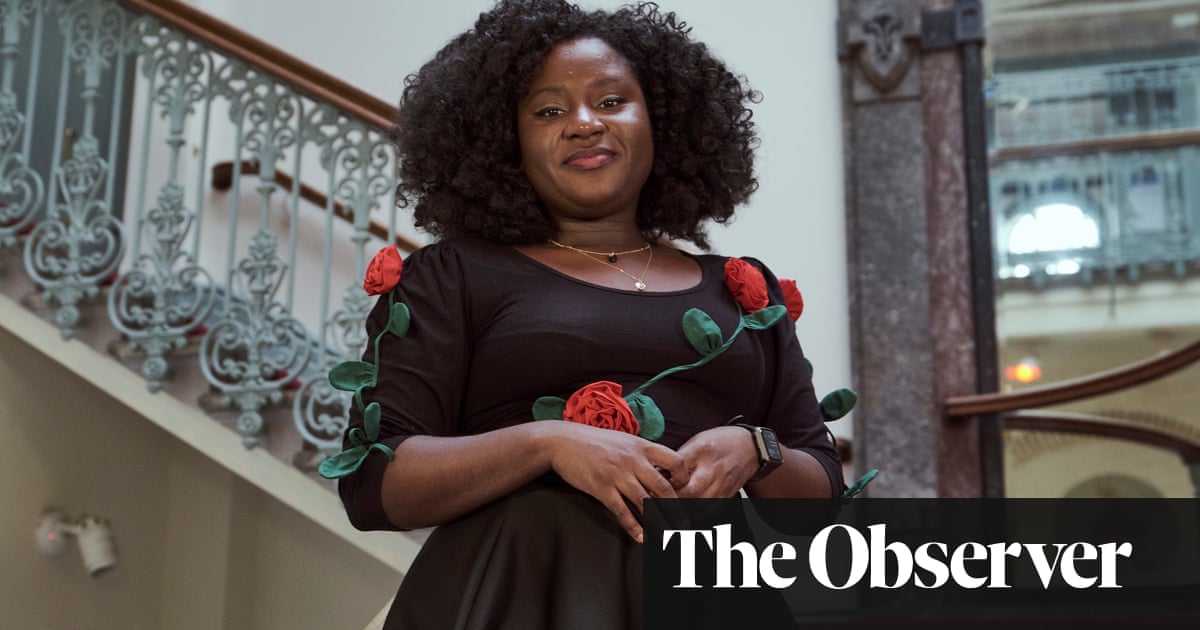
Stretching six metres and painted turquoise, the trailer has trundled across Spain, making its way to mountaintop villages, cobblestone plazas and medieval historical centres. No matter the location, the process starts much in the same way: with the unfurling of a giant screen.
“Our motto is cinema for everyone and anywhere,” said Patricia de Luna, one of the co-founders of La Barraca de Cine, a roving cinema that has made its way to dozens of villages across Spain in the past year. “Those evenings of cinema with family, friends and that shared experience with those around you – that’s the magic we want to create.”
It is a cinematic take on an effort launched nearly a century ago by Spanish poet Federico García Lorca. In the early 1930s, Lorca along with writer and film director Eduardo Ugarte, launched an initiative to bring classical theatre to villages across Spain.
The project was named La Barraca, referring to the makeshift wooden stalls set up at fairgrounds. “Lorca did it with theatre and we do it with cinema,” said De Luna. Theirs has a bar, too.
La Barraca de Cine has visited 45 villages so far this year.
La Barraca de Cine has visited 45 villages so far this year. Photograph: La Barraca de Cine
La Barraca de Cine officially launched in 2020, just 15 days before the coronavirus pandemic plunged Spain into one of Europe’s strictest lockdowns. Months later, as confinement gave way to tepid socialising, the project began crisscrossing Spain, screening everything from historical and family films to recordings of the opera La Traviata being performed at Madrid’s Teatro Real.
“When we were confined to our homes, we had stopped sharing our daily lives,” said De Luna. “This was a way of sharing, of getting out, of speaking to each other again.”
The initiative comes as cinemas across Spain and around the world grapple with the fallout of the pandemic, fending off a deep crisis that has left many of them shuttered. The Barraca de Cine is open to visiting any village, with just one stipulation that it cannot already have a cinema.
“We’re not here to compete with cinemas,” said De Luna. “We want cinema to reach everyone.”
The company works with local officials to decide which film to screen and how to tailor it to the village.
The company works with local officials to decide which film to screen and how to tailor it to the village. Photograph: La Barraca de Cine
Each screening is anchored by at least one master of ceremonies who introduces the film with anecdotes about the characters, the director or how it was received. “We try and present it in a way that isn’t cold for the spectator,” said De Luna.
Buoyed by funding from Spain’s ministry of culture, La Barraca de Cine relies on village councils to hire them. Once contracted, they work with local officials to hash out which film to screen and how best to tailor the experience to the village. Last year, they visited 40 villages; so far this year they have been to 45.
At the crux of the project is the belief that access to cinema is a right, said Iratxe Quintana, the other co-founder of La Barraca de Cine. “It’s not just a question of having a good time, which is part of it, but film is also something that shapes us and creates opportunity.”
Each screening is anchored by at least one master of ceremonies who introduces the film.
Each screening is anchored by at least one master of ceremonies who introduces the film. Photograph: La Barraca de Cine
Fuelled by this view, the project emphasises accessibility. Through a partnership with a university in Madrid, the experience includes an app that provides subtitles and descriptive video for people who are deaf or blind.
It is a nod to how Lorca once used culture to tackle isolation. “Back then, the villages were even more isolated, as they didn’t have internet or television,” said Quintana.
These days, as many rural Spanish villages stave off the steady hollowing out of their population, the mission has been slightly recast. “It’s about reviving the social and cultural life of villages,” said Quintana. “But the spirit is the same: to try and make the world a bit better.”












